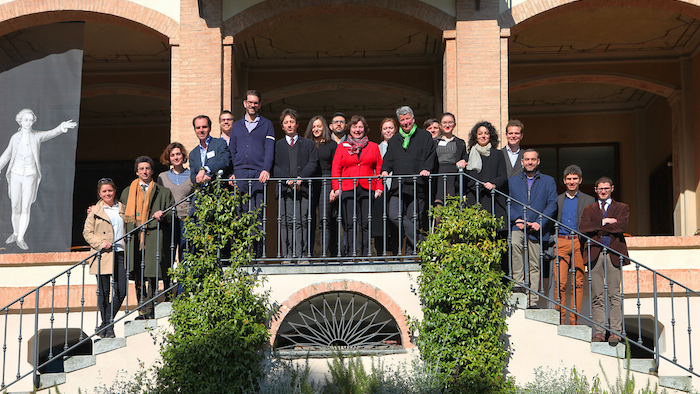Sixty years after the Treaty of Rome was signed, a lot of work still needs to be done. The European Union is suffering the blows of a widespread lack of trust in European institutions, a refugee crisis and its link to arising xenophobia, generational inequalities, populism and many other issues that can undermine its foundations and achievements.
In occasion of this anniversary, it’s time to celebrate the past, but also to rethink the future. And the young must affirm its role in the institutional dialogue.
This is why we as NEOS are supporting as media partners an initiative whose importance seems of great relevance and significance to us. The German-Italian Centre for European Excellence, Villa Vigoni and the organisation United Europe have selected a group of outstanding young European scholars and professionals who will develop a common vision of where Europe should be heading. The aim is to write a document, “The Rome Manifesto”, which should offer a perspective on the future of Europe.
The authors (in the photo above) are brilliant young Europeans – from 25 to 40. Half of them are young scholars specialised for instance in history, philosophy, EU law and public governance. The other half are young professionals including a doctor, a startup entrepreneur, a business consultant and a public affairs specialist.
They are divided into three groups:
- “Narrative of European integration”, with Germany’s former finance minister Peer Steinbrück as patron. While the fundamentals of Europe’s mission – safeguarding peace and prosperity – continue to be valid, the interpretation of what that means will need to change in order to explain Europe’s raison d’etre to today’s Europeans.
- “European institutions”, whose patron is Filippo Taddei, Director of the Bologna Institute for Policy Research at the Johns Hopkins University in Bologna and Chief economist of the Italian Democratic Party. Currently, decision-making at the EU level not only lacks effectiveness, but also transparency. Ordinary people do not understand how Europe’s institutions work which harms their legitimacy. Add to that the fact that many national governments have taken to blaming the EU for unpopular decisions, even if they were involved in making these decisions, themselves.
- “European Identity”, with Sylvie Goulard, French Member of the European Parliament. This group is is discussing what the European identity represents, and how Europeans can be made aware of it, in order to strengthen the link between Europe and its citizens. Across the continent, Europeans have many common roots in history, culture, politics, society and values. The geographic proximity also contributes heavily to a common destiny. If the European Union is to regain popular acceptance, more Europeans – including the older generation and people with a variety of educational backgrounds – will need to start sharing this sense of a European identity.
The choice of involving young Europeans has a double symbolic valence. On the one hand, it reflects the forward-looking feature of the Manifesto. On the other hand, it is the acknowledgment of a rising European identity in the young, which is well shown by the following chart by the 2012 Eurobarometer 78.
“It is among the young generations and the most economically and socially advantaged categories that the European Union enjoys the most favourable image”, says the Eurobarometer 83 of 2015. Positive perceptions are the most widespread among Europeans belonging to generation “Y”, born after 1980 (47% “positive” versus 14% “negative”, and 38% neutral stance) and people who studied up to the age of 20 or beyond (49% versus 15%, and 35% “neutral”).
The working groups have recently met at Villa Vigoni to conclude the drafting of the document. In the run-up to the anniversary celebrations of the Treaty of Rome, the document will be presented at the Residence of the German Ambassador in Rome, Villa Almone, on 23 March.
Was this article useful? If so we are delighted!
It is freely available because we believe that the right to free and independent information is essential for democracy. But this right is not guaranteed forever, and independence comes at a cost. We need your support in order to continue publishing independent, multilingual news for all Europeans.
Discover our subscription offers and their exclusive benefits and become a member of our community now!













